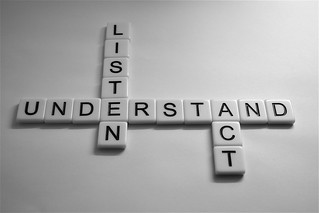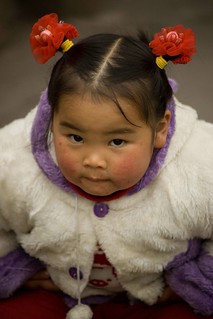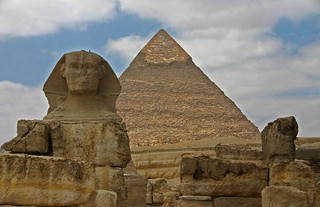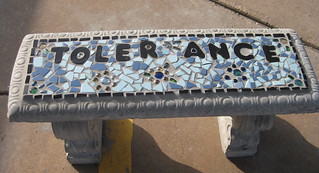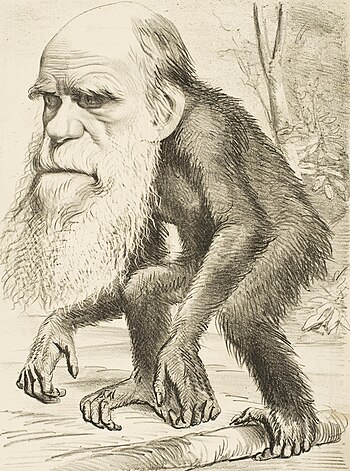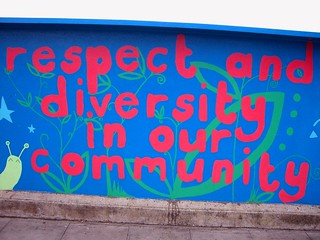| Listen, Understand, Act (Photo credit: highersights) |
Labels
Chinese culture
(16)
art
(18)
book reviews
(34)
child abuse
(10)
culture comparison
(10)
ethics
(11)
go game
(2)
history
(19)
life
(76)
love
(12)
movie reviews
(20)
my aphorisms
(97)
philosophy/reason
(13)
quotes
(42)
random thoughts
(146)
religion
(17)
suicide
(3)
June 12, 2014
Understanding
Labels:
my aphorisms,
understanding
June 11, 2014
How Powerful Is Belief
| Faith (comics) (Photo credit: Wikipedia) |
I realized, one of reasons that they kindly "suggested", implied or even believed that my physical chronic illness was caused by my "mental depression", is simply because they did not believe, that being single could be a healthy lifestyle. Because of this "belief", despite there were no evidences showing that I was depressed, despite of my polite and clear explanation, they still SAW my "depression" as a plain fact. This really show me how powerful belief is - as soon as you believe in something, you simply ignore facts that go against it. It can really turn black into white!
Labels:
chronic illness,
random thoughts,
single lifestyle
June 9, 2014
"Even Chinese Children Won't Get Up That Early!"
| Child on New Year's Day (Photo credit: ROSS HONG KONG) |
What does this message mean? It means that in China, children's working hard, enduring stress is something most Chinese people take it for granted!
I have written enough articles about this subject (in Chinese) so I don't feel like to repeat. And I think the above message already speaks for itself, showing what children's life in China is like.
P.S. The image happened to be a little funny. I meant to find a serious one, but this one was too cute to ignore. And I trust her not to take her parents' and future teachers' cr*p!
Labels:
child abuse,
children,
Chinese culture,
random thoughts
Creativity vs. Curiosity
| English: The School of Athens (detail). Fresco, Stanza della Segnatura, Palazzi Pontifici, Vatican. (Photo credit: Wikipedia) |
For very long time I've been pondering why art could not be enough for me, the answer became quite clear recently: even though I have some art talent, profoundly speaking, I am more a person with curious nature, which cannot be satisfied by art. This makes working as a professional artist a profound contradiction to my nature. No wonder I struggled!
Labels:
art,
creativity,
curiosity,
human nature,
random thoughts,
science
When Were Pyramids Built And What Do They Mean To Us?
| Pyramids (Photo credit: Mathew Knott) |
The documentary would "force" us to ask questions about what we were told by history textbooks, even to question evolution. Think about it, if the time of pyramids were built can be dated several thousands years earlier, or even tens of thousands earlier (than what we currently believe), and during which mankind (or were they really mankind?) already possessed high technique, history must be rewritten, and we might even have to rethink about this all evolution theory, which constructed by genius Darwin, and "proven" by all the archaeological evidence and biological study. Wow!
And don't forget, there was always Atlantis!
Another video:
https://www.youtube.com/watch?v=CNwtk5SONSk
Labels:
egyptology,
history,
pyramids,
science
No, I Am Not Grateful To My Parents
| I am the master of my fate: I am the captain of my soul. (Photo credit: Aristocrats-hat) |
My fighting to get away with art profession was not because of my resentment to my parents (if it was, it's only during the moments when I was extremely weak, which I openly admit, because I am human), but my clear "knowledge" of myself. Since very young age, I knew what kind of intelligence I had and what kind of person I wanted to be. My current "negotiate" with art profession is just a temporary refugee, due to my middle age health "disaster", which lasts more than a decade. This "negotiation" doesn't mean I have given up my "dream", neither it means I would feel miserable if I cannot reach my "dream". I found peace with myself and my fate, include the fighting part - which means I would still fight whenever I can.
Talking about gratitude, there are lots of things in my life I feel grateful for, but mostly, I feel extremely grateful and lucky for my positive nature, which was the reason I survived from a extremely "sick" and poisonous family, and still be able to love life. I am also grateful for being able to living in this country, where I could live freely, think and talk freely. And there are lots more, which are not necessary to be mentioned in this short post.
Another day we had discussion in BC about what's the mantra for life, here is mine: know what you want, try your best to get it, and if you fail, find peace with it, but never give up without a try (fight).
Labels:
fate,
grateful,
life,
profession,
random thoughts
June 8, 2014
Profession And Passion
| Andre Agassi Tennis (Photo credit: Wikipedia) |
I cannot count how many this type of people I've met in my life, so I had this "conclusion" this morning:
Those whose choices of profession were solely based on money have no slightest idea what passion is.
Labels:
Andre Agassi,
passion,
profession,
random thoughts
June 4, 2014
Did Neandertals have language?
A Fascinating article about our origin: Did Neandertals have language?
Labels:
history
June 3, 2014
Tolerance
| tolerance (Photo credit: glsims99) |
Labels:
injustice,
my aphorisms,
tolerance
June 2, 2014
Speakers vs. Listeners - A little thought From Angelou's Quote
 |
| Maya Angelou (Photo credit: Burns Library, Boston College) |
This is so very true. Maya Angelou was truly a remarkable poet. However I think we better not take this quote in an absolute sense, because if we were all concerned too much about how others react to what we said, we would hardly get chance to speak what we truly feel or think. So, speakers need to be considerate, listeners also need not to take everything personal. Everything takes efforts from both sides.
Labels:
free speech,
maya angelou,
random thoughts,
understanding
May 27, 2014
I Am Not An "Artist" - Profession And Confidence
| Identity conceptual view (Photo credit: Wikipedia) |
Don't get me wrong. I love art. Van Gogh's paintings would move me into tears. And occasionally, if I painted something I felt satisfied, I would stare at them for long time. But, I don't think I am that type of artists who could devote their entir lives to art. Very unfortunately, many times in my life, I had to spend too much time doing "art", just for making living. That's why once I called myself "an artist by misfortune".
Now I am not going to write about how I fought with my monstrous fate, instead, I like to touch a little bit about how a person's social identity affect his/her personal confidence.
One of contemporary psychologists (I forgot his name) believed that when people reached their adult life but still did not approve their professions, they would easily get into a troubled state of mind called "professional identity disorder", and it would strongly affect their confidence. I don't know about others, but this theory sounds 200% true to me!
After I entered middle age, I trapped into a job that I would never imagine I would possibly choose: custom portraits. Despite the overwhelming compliments I received everyday, my confidence simply collapsed, especially during the periods that I had no idea how I could escape. During that "dark middle age" I simply could not help to think that my life was a total waste, because what I loved to do, such as pursuing knowledge, pondering the mystery of life, day dreaming, wondering, all had no chance to get into my daily schedules. I also developed a strong psychological problem: social anxiety. I had problem to be with people who I loved to be with, because I had trouble to face their confidence. I also refused to get into any possible love relationships. I blew away numerous beautiful chances, because I simply did not know who I was.
Now, I no longer had such intense sense of lost, because first, I learned to accept the fact that my fate is more powerful than me; second, I found a way to "squeeze" majority of my time for my freedom, during which I don't have to bother with "art". Gradually, I found myself happy, and accordingly, my confidence came along.
I also found, since we humans are social animals, our social confidence would be fully installed inside us when our professional identities approved by both ourselves and others. I had long term problem with my social life, because when I was well accepted by others, I was an "artist" whom was not accepted by myself; when I acted as a "none- artist", (some) people would choose to stay away from me because they did not believe that's who I was (I was gently criticized as "don't know how to appreciate what I have"). This conflict once brought me so much trouble. It is still on going in my current life, but not so much problems any more.
Probably some people don't mind much about what they do, or not do, but I found my happiness is quite closely related to it. I simply cannot imagine myself doing something repetitively like a machine. And the more freedom I have, the happier/more confident I am. I have reason to believe, that our true confidence is in direct proportion to our happiness. From this point of view, logically, we could say that our professions, which take majority time of our lives, do affect the overall quality of our lives, thus our happiness and our confidence, more or less, directly or indirectly.
Labels:
confidence,
profession,
psychology,
random thoughts
April 28, 2014
Sense Of Shame Vs. Sense Of Guilt -- Two Different Phases Of Moral Development
| Michelangelo Moses (Photo credit: Wikipedia) |
1. Human - social animals
We human are social animals. Our existence relies on cooperation, or communication. We were not necessarily more "superior" than any other types of animals in terms of physical ability. i.e., we cannot fly as birds, run like deer, bite like lions, hide like snakes, but we do excel in communicating. Perhaps, it was mostly due to this ability (to communicate and to cooperate), we not only survived, but prospered into civilization.
In order to cooperate, we much work as groups, and in order to work as groups, we must have stable communities, or societies. Therefor, there must be some forces that can bind us together. Looking into humans societies, we may find, that beside our natural needs to communicate, such as feelings, there are two main forces that group us together, one was made collectively and imposed on individuals; the other was also made collectively, but taught through tradition or education, and gradually ingrained into individuals' minds. The former is law, the latter is morality. So basically, morality is just a set of principle for individuals to follow, in order to establish social stability. And to make morality easier to comprehend, we invented the concept of "good" and "bad", or "right" and "wrong", grant those behaviors or thoughts that are helpful to our bond, condemn those that are harmful to it.
The history of morality is as long and complicated as human him/herself. Though religion has very simple explanation about the emergence of morality, from historical view, morality was not endowed by "God", but created by humans, also it changes along time. If we look into history, it's not hard to see, that whatever we think is moral now or here, could be immoral then or there. There are plenty of examples which I would not bother to make.
The evolution of morality is a mega spider web, complicated and mysterious. However, what I am trying to take a closer look in this article is not this giant web, but two type of moral senses that have been ingrained in our human minds: sense of shame and sense of guilt.
2. Sense of shame vs. sense of guilt
I like to temporarily define a sense of shame as a feeling of guilt or even agony provoked by one's recognition that he/she is no longer innocent or decent in other people's eye; a sense of guilt is a self condemnation that one makes to him/herself due to his/her awareness of his/her wrong doings. There are similarities between these two, but also an fundamental difference: the sense of shame is evoked by others' judgment, while the sense of guilt is derived completely from one's self determination. Due to this difference, we could easily see that in the case of sense of shame, because one's feeling of guilt is due to others judgment, so if other people or society do not condemn one's conducts, he/she would not feel guilty; but in the latter case (sense of guilt), regardless how other people think, one would still condemn him/herself because the judgment of "right" or "wrong" is made by him/herself.
The individuals who only have sense of shame, usually value others opinion more than their own, thus when they found others no longer "look up" to them, they would feel insecure or abandoned, suffer a significant loss of self confidence; on the other hand, individuals who have sense of guilt would not share these feelings because the it is their own choice to condemn their misconducts. For individuals whose moral drive is sense of shame, they would sometime even conceal their wrong doings, for the purpose of keeping their faces clean in others' eyes, and those whose moral drive is sense of guilt, they would confess their wrong doings even if they don't have to.
3. Collectivism vs. individualism
Sense of shame is a product of collectivism. Collectivism is a moral ideology that put collective value over individuals'. As we discussed in the beginning, humans are social animals, and individuals' survival is almost fully relies upon groups', so in most part of human history, collectivism is the dominant ideology.
It is because of this fact that individuals could not survive without groups, human beings developed this strong sense of "belonging". We would be extremely upset if we were rejected by groups. In many cases people would prefer die than being left alone. And naturally, we developed a psychological tendency to please others, or majority, or powerful ones, and the sense of shame would naturally take place when we failed to do so.
The positive contribution that sense of shame made to human societies is, that it makes tight bond between individuals and groups, so it helps establishing social stability. The negative part of it is that when there were no supervision, individuals would act "wrongly", or destructively, due to lack of self motivation to cooperate.
Sense of guilt is a product of individualism. Contrary to collectivism, individualism is a moral ideology that places the value of individuals above the value of groups. Among societies that collectivism is dominant ideology, individuals don't have much freedom, but among societies that individualism is dominant idea, individual freedom is the goal of social effort.
The paradox here is, as mentioned earlier that we humans are social animals and cannot survive without group effort, so would individualism leads to damage to societies? My answer is yes and no. If individualism emerged during earlier stage of humans history, or in some societies that are not ready for individualism (that is being dominated by collectivism), it would have negative effects, because societies might be quickly broken up due to unbounded individual freedom. But if individualism emerged in the societies that most people already have self-motive to cooperate, it can do more good than harm. Historical fact is, that individualism as a social ideology only emerged (or evolved) in societies that were ready for it, i.e., western Europe after its dark middle age, when people had very strong sense of guilt (mostly due to Christianity). At this stage, basic altruism already ingrained inside the minds of many (though not "all") individuals. Also, humanism that was originated from ancient Greek culture also nurtured Europeans with independence, responsibility, fraternity, love, mutual respect, etc. So when freedom finally came, there was a strong moral buttress that kept people's freedom under certain conditions. The great example of this would be The declaration of rights of man and of the citizen of French revolution: "Liberty consists in being able to do anything that does not harm others." The "does not harm others" is the bottom line of this individual freedom, without which would only do more harm than good to societies.
Comparing with the sense of shame, sense of guilt is a more advanced phase of morality development. Not only it shares the same positive effect as of sense of guilt, which is binding individuals together, but also it has some advantage that sense of shame doesn't have, which is making individuals cooperate with others without external force (self motivated altruism).
Maybe it is not entirely accurate to say that sense of guilt is a product of individualism. They both could be mutually dependent, and it could be a long process of evolution. Same can be said to the relationship between sense of shame and collectivism.
4. Morality and social system
Sense of shame most existed in earlier stage of human history, it also widely exists in today, mostly among societies where collectivism is dominant ideology. Sense of guilt as ideology emerged in recent human history, among societies where individualism was dominant ideology (namely Europe). Generally speaking, the equivalent social system for collectivism is despotism, for individualism is democracy.
As we already discussed, the development of European democracy was closely related to its moral development. That is, though its culture permit individual freedom, the societies can still keep their stability because of individuals' self motivated cooperating attitude. This is usually not the case in societies that ruled by despotic power - when given maximum individual freedom, the force that once keep societies together no longer exist, people's sense of shame would stop working, greed, selfishness, hatred, all these "evils" would unleashed and societies would simply collapse. Thus, after a short period anarchy, these societies usually had to go back despotism, in order to establish stability.
Based on this analysis, we may have better understanding of Chinese history, get better idea about why China walked through thousands years of repetition of extreme centralized ruling system and anarchy, still never developed democracy. We may also have better understanding about modern communism, when permit of killing was given, ordinary people could commit extraordinary atrocity. And maybe, we could understand, that the democracy in European civilization really was not something happened in one night, or by one revolution, but by a long evolutionary process. So, we may understand, arguably, an imposed democracy may not be very effective to those societies whose ideology is still dominated by collectivism.
Of course, there are individual differences. i.e., in despotic societies, we could often see people who have good sense of independence or responsibility, and in democratic societies, there are people who would also act irresponsibly. However, the overall change of a society does require collective effort. So only when an idea penetrate through majority, would the society change accordingly.
To conclude, both sense of shame and sense of guilt are parts of the development of human consciousness, and both function as the force to group individuals together. Most likely, all societies had been gone through the first phase - collectivism, under which people cooperated passively by their sense of shame, and only some societies evolved into a more advanced phase of ideology -individualism, under which people cooperate with each others by self motivation, or conscious choice.
So the question remains, if we humans started from the point, what made our societies so different now? Or, did we really start from the same point?
April 16, 2014
The opening paragraph of "The Twilight Zone" (TV series)
| 1959 Series Logo (Photo credit: Wikipedia) |
Labels:
quotes,
tv shows,
twilight zone
April 6, 2014
Is It Not A Good Idea To Reveal "Too Much" Personal Life?
| Eleven Kinds of Loneliness (album) (Photo credit: Wikipedia) |
Today in a Chinese restaurant which I often visited, I casually said to the boss when I sneezed: "Spring came with pollen." The boss knew me since years ago so we often chatted a little. A little differently, she answered to me with a decisive tone: "you SHOULD take medicine. " I said: "medicine would trigger my heart problem."
"what problem?"
"Palpitation."
"So what? You heart would stop beating?"
The way she said seemed half serious and half joking. I brushed off with a laugh. Just at the moment an employee joined our conversation, said that one should be careful with medicines. Since this opinion fit mine very well so I jumped into conversation with her, talked a little more about how I thought of modern medicine. Then when I walked out of the restaurant, the boss suddenly said to me:"you have mental problem." (or "worrying problem" 你有心病) I turned around, surprised, but thought she was still joking, so I gave her a laugh and left.
I thought I would not give it a second thought, but my mind didn't follow my order, and I didn't feel very good. Problem is, based on my personally experience, I knew she was not joking, at least not entirely. I also recalled that there were at least over 3 times that they made my orders spicy when I cleared told them not to. Once I went to pick up foods and asked them to double check my orders, they didn't seem to be comfortable with my request.
Of course, all of these could not be a problem if I just never reveal my personal life, especially if I never mentioned that I had health problem.
Since I entered the journey of my chronic illness years ago, I've been facing too much judgment, both from acquaintances and friends. I realized, had I never mention my health problem, things might be different. But how? Isn't talking about our daily life a way to make friends? Of course if I were healthy, had a family, kids, I would have so much more in common to share with others, but being a sick person, not being able to do this and that was my daily routine for years. And what's wrong with mentioning it? The fact is there's nothing wrong with it, but people just don't like "difference". I found that the "significant" difference between my life and a "normal" life seems to make lots of people uncomfortable, so they try very hard to imply, sometime to openly state, that what I said was not true, and I was not who I thought I was.
It seems that in this world, being different is a sin, and having an unknown illness is even a worse sin.
Worth to mention, that I did meet many kind people, who showed me true compassion. But the negative communication is much more overwhelming.
I may not go to that restaurant again. A little inconvenience to me, because I do like a few dishes there. And yes, I may change my social strategy a little bit, instead of being unnecessarily honest, I may just conceal myself little, at least in the social places like restaurants, stay mysterious and let people guess that I might be a serial killer.
Labels:
chronic illness,
difference,
random thoughts,
social life
April 2, 2014
Religious mind
Probably, religious mind is more to do with human nature than religion. That's why it is not marked by beliefs or professions, but attitude.
Labels:
my aphorisms,
religious
March 29, 2014
Judgement, Who Is To Blame?
| English: "A Venerable Orang-outang", a caricature of Charles Darwin as an ape published in The Hornet, a satirical magazine. (Photo credit: Wikipedia) |
March 24, 2014
Faith And Truth
| Telescope and night sky (Photo credit: Wikipedia) |
Labels:
faith,
my aphorisms,
truth
March 18, 2014
True Respect
| respect (Photo credit: Heliøs) |
True respect is not to ignore the existence of poor quality of lives, such as congenital inferiority (mental or physical), by saying that we are all talented, but to understand that even those who were born with less advantages still deserve our love.
Labels:
my aphorisms,
respect
March 11, 2014
"How about money?"
| Wooden Chair (Photo credit: epSos.de) |
Another day a not so well know friend called me, telling me that her new house (must be her second house) construction had just finished. I congratulated her. Then she asked about my health and everything else. I just told her that I was in very good shape, health was improving, and mentally I was very happy. As if disappointed by my answer, she asked: "how about money?" Surprised by this unexpected question, I asked how about it? She said that for all these years I must have no saving. I said that's right, because I barely had energy to take care of myself. "So?" She asked. Then I said that despite the difficulty, I still managed to make enough for me to live life. I also added that I don't really care much about money, because I believed that extra money don't bring extra happiness.
I don't remember exactly what's her response, but I do wish that I knew the quote above at that time so I could say: since I only have one ass and one chair, I have no money problem!
Labels:
happiness,
money,
random thoughts
March 10, 2014
"Out Of Africa" - An Epic Romance Between Karen Blixen And Africa
It took me 3 steps to fully enter the world of Karen Blixen: a poster, the music, and the video (of the movie).
It was 1980s. I was still in college back in China. Rumor said that Hollywood just produced another masterpiece, Out of Africa. I liked the name, though I didn't know why. Soon I saw the poster of Karen (Meryl Streep) and Denys (Robert Redford) sitting on African plain. The harmony between the characters and nature was exotic and almost heavenly beautiful. Since then I knew I would love this movie. Later, I had chance to listen the soundtrack of the movie from audio tape (fancy technology!). The music was spectacular and it instantly made the movie more fascinating to me. Finally, I got chance to watch the whole movie in video. I still remember that I had "luxury" to watch it twice in a raw. I was totally overwhelmed.
My "obsession" with this movie has multiple reasons: the breathtaking African scenery, spectacular music, outstanding acting and story, exotic African culture, etc.. All of these elements were beautifully woven together. The cinemagraph and soundtrack of the movie were the most astonishing and up until today, they still remain as my favorite. Though the story line may not be everybody's cup of tea, it is definitely mine. The extraordinary life experience of Blixen, her adventurous spirit, independent personality, perseverance during hardship, all built up the rich aroma of my "cup of tea".
And the romance: Denys Finch Hatton, Blixen's friend and lover in real life, played by Robert Redford. From the first moment Karen meets him on the train to Kenya, Denys exhibits a wild nature, as if himself is an unseparable part of African wildness. I have to admit, Redford's role in this movie is the most handsome male figure among all men I saw in both movies and real life (Yes, very subjective!). He appeared to be perfectly physically fit and spiritually charming. He is too wild to tame, too beautiful to possess, even too ideal to pursue. Yet Blixen tried, succeeded, and still failed at the end, because ultimately, as she puts in the film: "He was not ours, he was not mine." Denys, as handsome as he is, belongs to Africa, to the wild nature and the spirit of Eagle and Lion.
Despite of the beauty or the handsomeness of Denys (or Redford), the true profoundness of this film lies all in Karen Blixen herself. Driving by her willful nature, she comes to Africa with ambition. She has her enterprise - coffee plantation. She teaches local natives English, educates them with European culture. She also help local natives with her knowledge in medicine, earns their trust and love. She becomes the owner and the mistress of her world. However, as Denys puts, "What exactly is yours?... We are not owners here, ... We are just passing through." As if he is a prophet, Karen indeed loses everything at the end. Even at the moment she could had Denys again, she loses him again. At the end of movie, she says farewell to his servant, by then her only friend, and goes back to Denmark alone with nothing, except her memory.
Blixen's memory of Africa is almost as infinite as Africa herself. It was there she faced challenge of wildness, of different culture; it was there she saw suffering of the poors, the cruelty of war; it was there she met the despair of life, also experienced the passion of true love; it was there, Denys took her in plane, flew above cloud, let her have "a glimpse of the world through God's eye". Yet in the end, it was in every beautiful moment she lived that she wishes she had left her marks, so Africa could remember her, in the same way as she remember Africa:
If I know a song of Africa, of the giraffe and the African new moon lying on her back, of the plows in the fields and the sweaty faces of the coffee pickers, does Africa know a song of me? Will the air over the plain quiver with a color that I have had on, or the children invent a game in which my name is, or the full moon throw a shadow over the gravel of the drive that was like me, or will the eagles of the Ngong Hills look out for me?
You may also like: Memoir at the Foot of Ngong Hill - Isak Dinesen's "Out Of Africa"
It was 1980s. I was still in college back in China. Rumor said that Hollywood just produced another masterpiece, Out of Africa. I liked the name, though I didn't know why. Soon I saw the poster of Karen (Meryl Streep) and Denys (Robert Redford) sitting on African plain. The harmony between the characters and nature was exotic and almost heavenly beautiful. Since then I knew I would love this movie. Later, I had chance to listen the soundtrack of the movie from audio tape (fancy technology!). The music was spectacular and it instantly made the movie more fascinating to me. Finally, I got chance to watch the whole movie in video. I still remember that I had "luxury" to watch it twice in a raw. I was totally overwhelmed.
My "obsession" with this movie has multiple reasons: the breathtaking African scenery, spectacular music, outstanding acting and story, exotic African culture, etc.. All of these elements were beautifully woven together. The cinemagraph and soundtrack of the movie were the most astonishing and up until today, they still remain as my favorite. Though the story line may not be everybody's cup of tea, it is definitely mine. The extraordinary life experience of Blixen, her adventurous spirit, independent personality, perseverance during hardship, all built up the rich aroma of my "cup of tea".
And the romance: Denys Finch Hatton, Blixen's friend and lover in real life, played by Robert Redford. From the first moment Karen meets him on the train to Kenya, Denys exhibits a wild nature, as if himself is an unseparable part of African wildness. I have to admit, Redford's role in this movie is the most handsome male figure among all men I saw in both movies and real life (Yes, very subjective!). He appeared to be perfectly physically fit and spiritually charming. He is too wild to tame, too beautiful to possess, even too ideal to pursue. Yet Blixen tried, succeeded, and still failed at the end, because ultimately, as she puts in the film: "He was not ours, he was not mine." Denys, as handsome as he is, belongs to Africa, to the wild nature and the spirit of Eagle and Lion.
Despite of the beauty or the handsomeness of Denys (or Redford), the true profoundness of this film lies all in Karen Blixen herself. Driving by her willful nature, she comes to Africa with ambition. She has her enterprise - coffee plantation. She teaches local natives English, educates them with European culture. She also help local natives with her knowledge in medicine, earns their trust and love. She becomes the owner and the mistress of her world. However, as Denys puts, "What exactly is yours?... We are not owners here, ... We are just passing through." As if he is a prophet, Karen indeed loses everything at the end. Even at the moment she could had Denys again, she loses him again. At the end of movie, she says farewell to his servant, by then her only friend, and goes back to Denmark alone with nothing, except her memory.
Blixen's memory of Africa is almost as infinite as Africa herself. It was there she faced challenge of wildness, of different culture; it was there she saw suffering of the poors, the cruelty of war; it was there she met the despair of life, also experienced the passion of true love; it was there, Denys took her in plane, flew above cloud, let her have "a glimpse of the world through God's eye". Yet in the end, it was in every beautiful moment she lived that she wishes she had left her marks, so Africa could remember her, in the same way as she remember Africa:
If I know a song of Africa, of the giraffe and the African new moon lying on her back, of the plows in the fields and the sweaty faces of the coffee pickers, does Africa know a song of me? Will the air over the plain quiver with a color that I have had on, or the children invent a game in which my name is, or the full moon throw a shadow over the gravel of the drive that was like me, or will the eagles of the Ngong Hills look out for me?
Thanks Karen for passing along your memory!
You may also like: Memoir at the Foot of Ngong Hill - Isak Dinesen's "Out Of Africa"
Labels:
africa,
keran blixen,
movie reviews,
out of africa
Subscribe to:
Posts (Atom)
